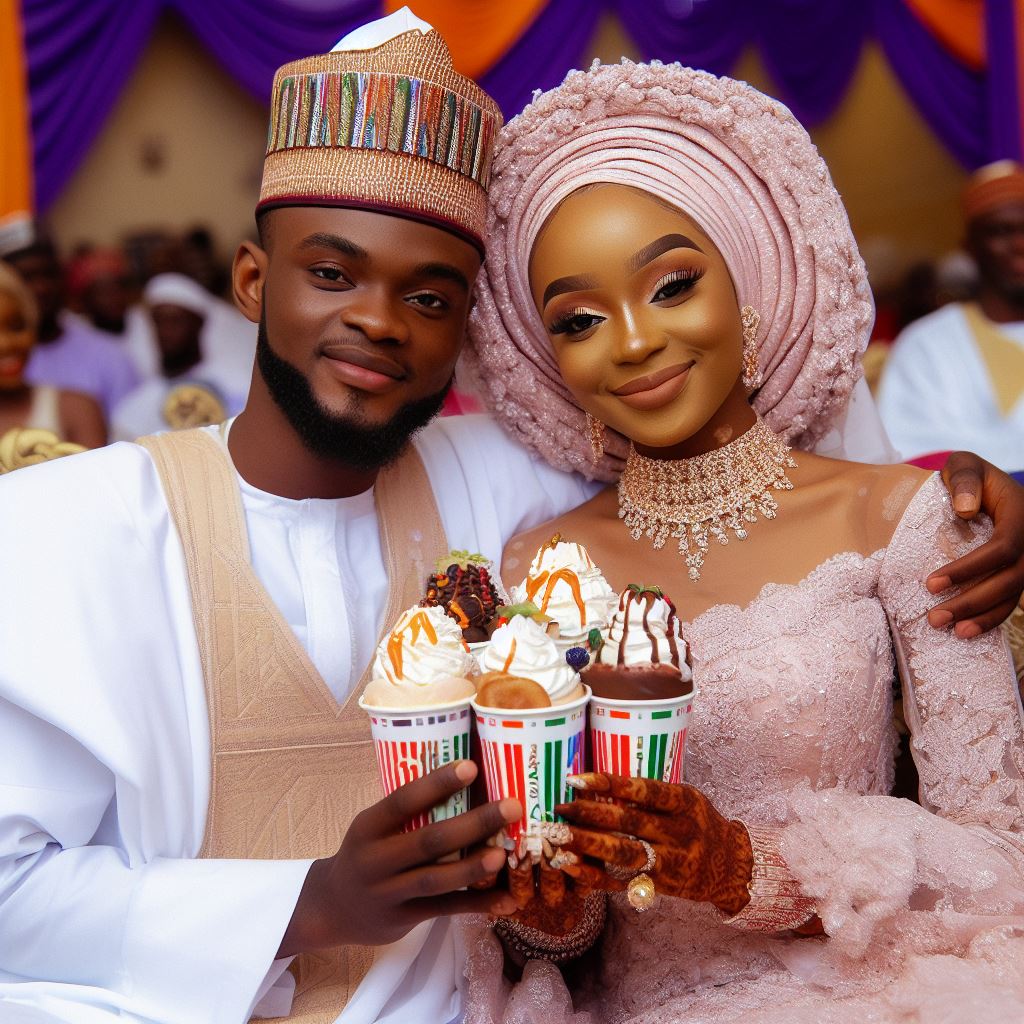Introduction
In Nigerian marriages, understanding genotypes and blood groups is crucial to ensure a healthy future for couples.
This blog post aims to provide essential information and answer frequently asked questions on this topic.
Genotypes and blood groups play a significant role in determining the health risks and compatibility of partners.
Nigerians need to be aware of these factors to make informed decisions and prevent medical complications in their relationships.
The purpose of this blog section is to offer a concise yet comprehensive guide to help Nigerians navigate the complexities of genotypes and blood groups in their love lives.
By addressing common queries, we aim to alleviate concerns and equip individuals with knowledge for a healthier future together.
Throughout this blog post, we will cover a range of topics, including the different blood types and their compatibility, understanding genotypes and their implications, the importance of genetic counseling, and the strategies for building a successful relationship despite potential challenges.
It is crucial for Nigerians to recognize the significance of genotypes and blood groups in their marriages and prioritize the well-being of their future children.
With this guide, we aim to provide clarity and empower individuals to make informed decisions for a healthier and happier future with their loved ones.
What are genotypes and blood groups?
Genotypes and blood groups are essential aspects to consider in relationships and marriages in Nigeria.
Understanding these factors is crucial for a healthy and successful union.
Genotypes refer to the genetic makeup of an individual, specifically the combination of alleles for a particular gene.
In Nigeria, the most common genotypes are AA, AS, AC, and SS.
Blood groups, on the other hand, are based on the presence or absence of certain antigens on red blood cells.
The four main blood groups are A, B, AB, and O.
Explanation of Genotypes and their Significance in Nigeria
AA is considered a normal genotype, while AS indicates sickle cell trait.
AC is a variant of AS, and SS represents sickle cell disease, a severe condition.
In Nigeria, sickle cell disease is prevalent, with approximately 24% of the population carrying the AS genotype.
It is important to note that individuals with AS genotypes are carriers of the sickle cell trait, which might not affect them directly but can be passed on to their children.
Explanation of Blood Groups and their Relevance in Relationships
Blood groups play a crucial role in determining blood compatibility between individuals.
It is important to consider blood groups before getting married or having children.
In Nigeria, it is widely believed that certain blood groups are incompatible and can lead to health problems for the mother and baby.
For instance, a woman with blood group O might have difficulties when pregnant with a partner who has blood group AB.
Understanding blood groups ensures that couples are aware of potential issues and can take necessary precautions, such as blood compatibility tests, to prevent complications during pregnancy.
Importance of Understanding Genotypes and Blood Groups before Marriage
Before getting married, it is crucial for couples to have knowledge and understanding of their genotypes and blood groups.
This helps in making informed decisions about starting a family.
When both partners have the AS genotype, there is a 25% chance of having a child with sickle cell disease.
However, if one partner has the AA genotype, the risk decreases to 50%, eliminating the possibility of having a child with sickle cell disease.
By understanding their genotypes, couples can seek genetic counseling and aware of the potential risks associated with their genotype combination.
Genetic counseling provides couples with information on family planning options, including prenatal diagnosis and assisted reproductive techniques.
Additionally, knowing their blood groups helps couples take preventive measures during pregnancy to ensure the well-being of the mother and child, such as seeking regular antenatal care and conducting blood compatibility tests.
In Nigeria, understanding genotypes and blood groups is crucial in relationships and marriages.
Having knowledge about these factors allows couples to make informed decisions about starting a family and take necessary precautions to prevent potential health complications for themselves and their children.
By understanding their genotypes and blood groups, individuals can seek appropriate medical advice and counseling, ensuring a healthy and safe future for their family.
Read: The Role of Family in Nigerian Marital Decisions
Common genotypes and blood groups in Nigeria
- The most common genotypes in Nigeria are AA, AS, and SS.
- AA is the normal genotype, AS is the carrier of sickle cell trait, and SS has sickle cell disease.
- The most common blood groups in Nigeria are A, B, O, and AB.
- Blood type A has A antigens, blood type B has B antigens, blood type AB has both A and B antigens, and blood type O has no antigens.
Implications of each genotype in terms of health and potential complications
- Individuals with AA genotype are generally healthy and do not have sickle cell disease.
- Individuals with AS genotype are carriers of sickle cell trait and may have mild symptoms.
- Individuals with SS genotype have sickle cell disease and may experience severe pain crises and complications.
- Sickle cell disease can lead to anemia, organ damage, infections, and reduced life expectancy.
Prevalence and importance of knowing one’s blood type in relationships
- Knowing your blood type is important for individuals in relationships, especially before marriage.
- Compatibility of blood types is crucial to prevent the risk of certain blood disorders in their children.
- In Nigeria, it is recommended for couples to undergo blood compatibility tests before marriage.
- If both partners have the AS genotype, there is a 25% chance of having a child with sickle cell disease.
- Education and awareness regarding genotypes and blood types are essential to make informed decisions about relationships.
- Pre-marital counseling and genetic counseling can help couples understand the risks and options available.
Understanding genotypes and blood groups is crucial for Nigerians in love.
The most common genotypes in Nigeria are AA, AS, and SS, with each having different implications on health and potential complications.
It is important to know your blood type to determine compatibility and the risk of passing on genetic disorders, such as sickle cell disease, to future children.
Education, awareness, and proper counseling can help couples make informed decisions and ensure the well-being of their future family.
Read: Understanding Marriage: A Deep Dive into its Roots in Nigeria
Genetic compatibility and risks
Genetic compatibility refers to the match or compatibility between the genotypes and blood groups of two individuals.
Genotypes are the genetic makeup of an individual, which determines their traits and susceptibility to certain diseases.
Blood groups, on the other hand, are determined by the presence or absence of certain antigens on the surface of red blood cells.
When it comes to relationships, genetic compatibility is important because certain genotypes and blood groups can have implications for the health of the couple’s potential children.
Couples with incompatible genotypes may be at risk of transmitting genetic disorders and conditions to their offspring.
For example, if both partners carry the sickle cell trait (genotype AS), there is a 25% chance of having a child with sickle cell disease (genotype SS) in each pregnancy.
Other genetic disorders that can be influenced by incompatible genotypes include thalassemia, cystic fibrosis, and Tay-Sachs disease, among others.
Incompatible blood groups can also pose risks during pregnancy.
If a woman is Rh-negative while her partner is Rh-positive, the fetus may inherit the Rh-positive blood type, potentially leading to complications known as Rh incompatibility.
Rh incompatibility can cause erythroblastosis fetalis, a condition where the mother’s antibodies attack the red blood cells of the fetus, leading to anemia and other health problems.
It is important for couples to understand and be aware of these risks and potential health complications before deciding to start a family.
The importance of genetic counseling and testing before marriage
Genetic counseling involves a consultation with a healthcare professional who specializes in genetics to assess the risk of genetic disorders in a couple’s potential offspring.
Before marriage, it is recommended for couples to undergo genetic counseling and testing to evaluate their genotypes and blood groups.
A genetic counselor can help provide information about the risks associated with the couple’s specific genotypes and blood groups.
Genetic testing can determine the genotypes and blood groups of the couple, as well as identify any potential risk factors or genetic disorders.
By undergoing genetic counseling and testing, couples can make informed decisions about their future together, taking into account the potential risks and complications that may arise.
If the couple is found to have incompatible genotypes or blood groups, they can explore options such as preimplantation genetic diagnosis, adoption, or using donor gametes to reduce the risk of passing on genetic disorders to their children.
Genetic counseling also provides an opportunity for couples to discuss family planning, potential treatments or interventions, and available support systems.
Overall, genetic counseling and testing before marriage can play a crucial role in ensuring the well-being and health of future generations.
It allows couples to make informed decisions and take necessary precautions to reduce the risks associated with incompatible genotypes and blood groups.
By understanding their genetic compatibility, couples can better prepare for their future together and make choices that will positively impact their potential children.
Read: Legal Aspects of Marriage: What Nigerians Should Know

Frequently Asked Questions about Genotypes and Blood Groups
When it comes to relationships, understanding genotypes and blood groups is crucial for Nigerians.
Here are some frequently asked questions and their detailed answers:
What are the chances of having a child with sickle cell anemia if both partners are AS?
If both partners have the AS genotype (meaning they are carriers of the sickle cell trait), there is a 25% chance that their child will have sickle cell anemia.
This is a serious genetic disorder that affects the red blood cells and can lead to various health complications.
Can two individuals with AS genotype have a healthy child?
If both partners have the AS genotype, they can still have a healthy child if the other partner has the AA genotype.
In this case, the child will inherit the A allele from one parent and the S allele from the other, resulting in a genotype of AS.
Being a carrier of the sickle cell trait does not necessarily cause health problems, but it is important to be aware of the potential risks.
What if partners have different blood types, does it affect their relationship?
No, having different blood types does not affect the relationship between partners.
Blood types are determined by the presence or absence of specific antigens on the surface of red blood cells.
While blood type compatibility is important for blood transfusions and childbirth, it does not have any direct impact on the emotional or physical connection between individuals.
Are there any precautions couples can take to avoid genetic risks?
Yes, there are precautions couples can take to minimize genetic risks.
It is recommended that couples undergo genetic counseling and testing before planning a pregnancy.
This helps identify any potential genetic disorders they may carry and provides information on the likelihood of passing them to their children.
Based on the results, couples can make informed decisions about family planning, including the option of prenatal diagnosis or exploring alternative reproductive methods such as in vitro fertilization (IVF) with preimplantation genetic diagnosis (PGD).
In short, understanding genotypes and blood groups is essential for Nigerians in love.
By being aware of potential genetic risks and seeking proper guidance, couples can make informed decisions and ensure a healthy future for their children.
Read: Inter-tribal Marriages in Nigeria: Bridging Cultures
See Related Content: Cultural Implications of Choosing ‘Marriage by Ordinance’ in Nigeria
How to handle genotype and blood group issues in relationships
- Understanding your own genotype and blood group is the first step.
- Have an open and honest conversation with your partner about genotypes and blood groups.
- Consider seeking genetic counseling or medical advice to understand the potential risks involved.
- Educate yourself about the implications of different genotype combinations.
- Accept the reality that there may be limitations or challenges in having children with incompatible genotypes.
- Discuss and explore alternative options such as adoption or assisted reproduction techniques.
- Remember that love and commitment go beyond genotypes and blood groups.
- Support each other emotionally and seek professional help if needed.
The importance of open communication and transparency about genotypes and blood groups
- Honesty and transparent communication build trust and avoid misunderstandings.
- Discussing genotypes and blood groups helps you make informed decisions together.
- Understanding your partner’s genotype can prevent future complications or surprises.
- Open communication fosters an atmosphere of support and understanding.
- Sharing genetic information enables you to plan for a healthy and happy future.
Encouraging couples to seek medical advice and counseling before making decisions about marriage
- Consult a medical professional to assess the risks associated with your specific genotypes.
- Medical advice can help you understand the chances of having children with genetic disorders.
- Counseling provides emotional support in navigating the complexities of genotypes and blood groups.
- Consider premarital screening to gain comprehensive knowledge about your genetic compatibility.
- Make informed choices by understanding the potential consequences of your decision.
Discussing the options available for couples with incompatible genotypes
- Acceptance and adjusting expectations are vital when dealing with incompatible genotypes.
- Explore options like preimplantation genetic diagnosis to avoid passing on genetic disorders.
- Adoption allows couples to build a loving family without genetic concerns.
- Consider the possibility of using a surrogate or sperm/egg donor to have healthy children.
- Focus on building a strong and fulfilling relationship beyond biological parenthood.
In review, handling genotype and blood group issues in relationships requires open communication, seeking medical advice, and exploring alternative options.
Transparency and understanding are key to navigating the challenges that may arise.
Remember, love and commitment are not determined by genotypes or blood groups, but by the strength of your bond and mutual support.
Conclusion
Recapping the key points discussed in this blog post, it is crucial for Nigerian couples to understand their genotypes and blood groups.
Genetic compatibility plays a vital role in determining the health and well-being of future children.
Having different genotypes or incompatible blood groups can lead to serious health risks and potential birth defects.
It is important to seek proper medical guidance and support to address any concerns about genetic compatibility before tying the knot.
Consulting with healthcare professionals and undergoing necessary tests can help Nigerian couples make informed decisions.
By prioritizing understanding and awareness of genotypes and blood groups, couples can ensure the well-being of their future children.
Love alone cannot mitigate the potential risks associated with genetic incompatibility.
It is always better to be safe and take necessary precautions for a healthy and fulfilling future.
Therefore, Nigerian couples should make it a priority to have open discussions and seek professional advice before marriage.
Remember, knowledge is power, and understanding genotypes and blood groups can pave the way for a blissful and healthy family.




